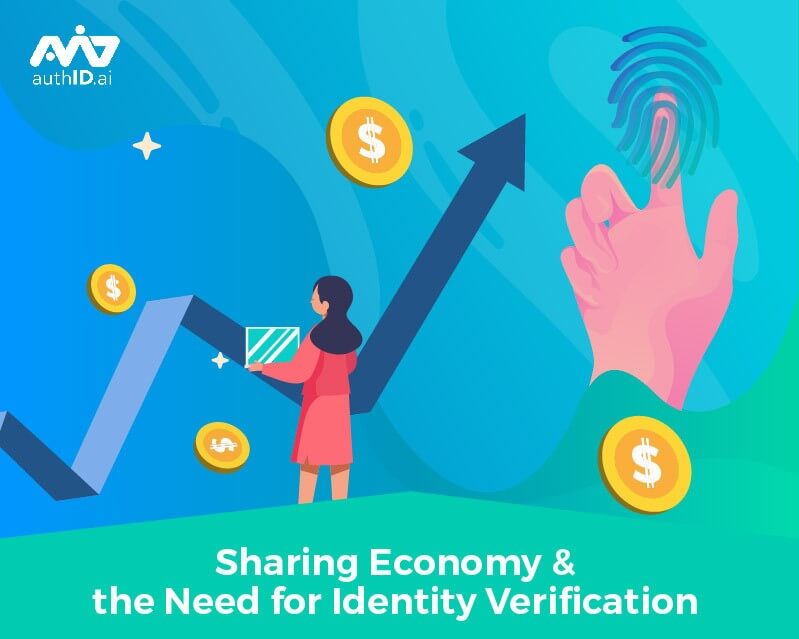Share-based businesses have grown rapidly over recent years, with many analysts expecting this market to continue booming. According to Statista, the global sharing economy’s value is forecasted to reach $335 billion by 2025, from $15 billion in 2014. Moreover, PwC estimates a similar figure, indicating a 2,133% growth within a 12-year time frame from 2013.
Since the sharing economy enables users to access services on-demand, many turned to it as a safer alternative during the COVID-19 pandemic, allowing them to transact, travel, and partake in certain activities while following physical distancing protocols.
Airbnb, a home-sharing platform, noted a significant increase in consumer spending on listings located in rural areas of the US in 2020. In June, their hosts in this location made 25% more than what they earned in the previous year.
Other sites also experienced a tremendous increase because of the pandemic. RVshare, a peer-to-peer (P2P) RV rental platform, witnessed a 650% growth in customer interest for their services, while hourly pool rental app Swimply recorded a staggering 3,300% increase since the pandemic started.
With more and more users flocking sharing economy sites, however, criminals are often attracted to exploit these services. Although P2P businesses may implement necessary measures to keep their digital platforms safe, some of these security protocols might not be enough to keep out bad actors.
Collaborative economy platforms are susceptible to risks if they do not employ identity-based security measures. They also face the challenge of modern consumer demand for a seamless user experience in the digital space.
Trust is paramount in the share-based business model, emphasizing the need for adopting stronger identity verification systems. Companies in this industry must meet these challenges if they want to stay relevant in the market.

Data Privacy and Safety Concerns
Users on both sides have to disclose certain information when using sharing economy services. For instance, hosts need to provide their property’s address on home-sharing platforms, and drivers need to provide their vehicle’s description and plate number for clients to find them easily during pick up. Meanwhile, customers need to provide their whereabouts when using ride-hailing apps or other services that might require face-to-face meetings with unknown individuals.
Consequently, both contractors and customers want to feel safe when providing such data to the people they transact with online. They also want assurance that their physical and financial safety will not be compromised because of shared economy transactions.
Nevertheless, inadequate identity authentication measures leave collaborative economy networks vulnerable to data breaches. Criminals can use stolen information to pretend to be someone else or sell the information on the dark web. Thus, effective and efficient identity verification is critical to prevent unauthorized access and illegal disclosure of valuable data on these sites.
Lapses in Cybersecurity Measures
While some sharing economy sites have implemented identity verification and background checks for their users, there is a lack of uniformity in their procedures across providers.
For example, Airbnb requires a photo of a government ID as part of their identity proofing process, while VRBO and Booking.com have not yet included this credential. Yet, when booking a property in Spain, VRBO requires guests to provide a valid ID. In addition, Airbnb and Booking.com have publicized their efforts in conducting background checks for their members, while VRBO encourages its users to review guests and listings at their discretion.
In other examples, ride-hailing apps Uber and Lyft have endured public criticism and legal action in recent years because of lax screening processes that enabled known offenders to enter their network. Peer-to-peer car-sharing company, Turo, requires potential renters to manually enter their driver’s license information but does not seem to check whether the license is valid or if the driver is the owner of that credential.
Inconsistencies in security measures often entail consequences, leading to compromised safety, financial losses, customer distrust, and other costs. They also make it easier for fraudsters to sign up on the platform and swindle legitimate users.
Going for the bare minimum should not be an option in a business model where trust is critical. Companies in the collaborative economy must deploy modern and efficient solutions to ensure their users are who they claim to be and that they will not be likely to conduct illegal activities via the platform.
The Demand for Superior Customer Experience
A seamless user experience has a significant impact on customer retention. With the emergence of numerous sharing economy platforms and the surge in their users, customers can easily switch from one site to another if the site is too tedious and inconvenient to use.
Besides their need for security, most modern consumers want to use a digital platform with user-friendly features and minimal friction. Coming up with passwords and answers to security questions and remembering them can be a hassle. There is also the chance that users might forget this information and lock themselves out of their accounts.
Similarly, typing and retyping their phone number, address, or email or manually entering identity document information as a form of user verification are also time-consuming processes that are prone to user errors and malicious misuse.
P2P economy platforms should be able to provide both security and a hassle-free experience to their members. They must replace conventional identity authentication methods like knowledge-based authentication (KBA) with more modern and efficient solutions and keep friction minimal on their sites.
Build Trust and Promote Safety with Efficient Identity Verification Solutions
Trust is established when sharing economy companies can ensure the safety of their members. By providing a seamless user experience, they can also improve customer retention. Share-based businesses can meet these challenges by deploying mobile facial biometric identity proofing and automated identity document authentication as more robust defenses against criminal attacks.
These advanced solutions leverage commonly used mobile devices with built-in cameras to perform the identity verification process. Users can take a quick selfie and complete an active liveness detection test to biometrically confirm their identity using their facial image and ensure their real-time presence.
Additionally, by undergoing an automated driver’s license authentication, users can prove the genuineness of their government-issued credentials. Sharing economy companies can also harness systems that allow them to run new account creators against trusted registries of known offenders.
Since users will be accessing their accounts time and time again, collaborative economy platforms should ensure that they are still who they claim to be. Consequently, KBA should be eliminated and replaced with FIDO2 passwordless authentication and biometric multi-factor authentication (MFA) that uses a combination of strong authentication factors.
P2P economy users are multiplying rapidly, making identity verification and multi-factor authentication more imperative than ever. Therefore, share-based businesses should not skimp on the technology they use for their platform.
authID‘s delivers trusted Identity Verification for remote onboarding of users by harnessing mobile technology, anti-spoofing liveness confirmation, and biometric matching of a selfie to verified credentials to keep out fraudulent identities.
Verified™ by authID delivers trusted FIDO2 strong authentication for login, tied to a trusted identity. At enrollment, Verified harnesses authID’s seamless biometric identity proofing service to scan an identity document and biometrically match a user’s selfie to their document photo, thereby establishing a digital chain of trust between individuals, their accounts, and their devices.
Verified™ extends the value of a proofed identity by providing biometric authentication that offers greater assurance than KBA or other weaker two-factor authentication (2FA) solutions. It confirms consent to specific transactions, capturing a biometric audit trail to determine suspicious activities.
Schedule a Demo with authID
authID.ai is a provider of an Identity platform that delivers a suite of secure, mobile, biometric identity solutions, available to any vertical, anywhere. With authID‘s products, sharing economy businesses keep their sites safe from risks by onboarding legitimate contractors and consumers, and ensuring only the authorized user can access their accounts. Contact authID today at 1 (516) 778-5639 or click here to schedule a demo.

